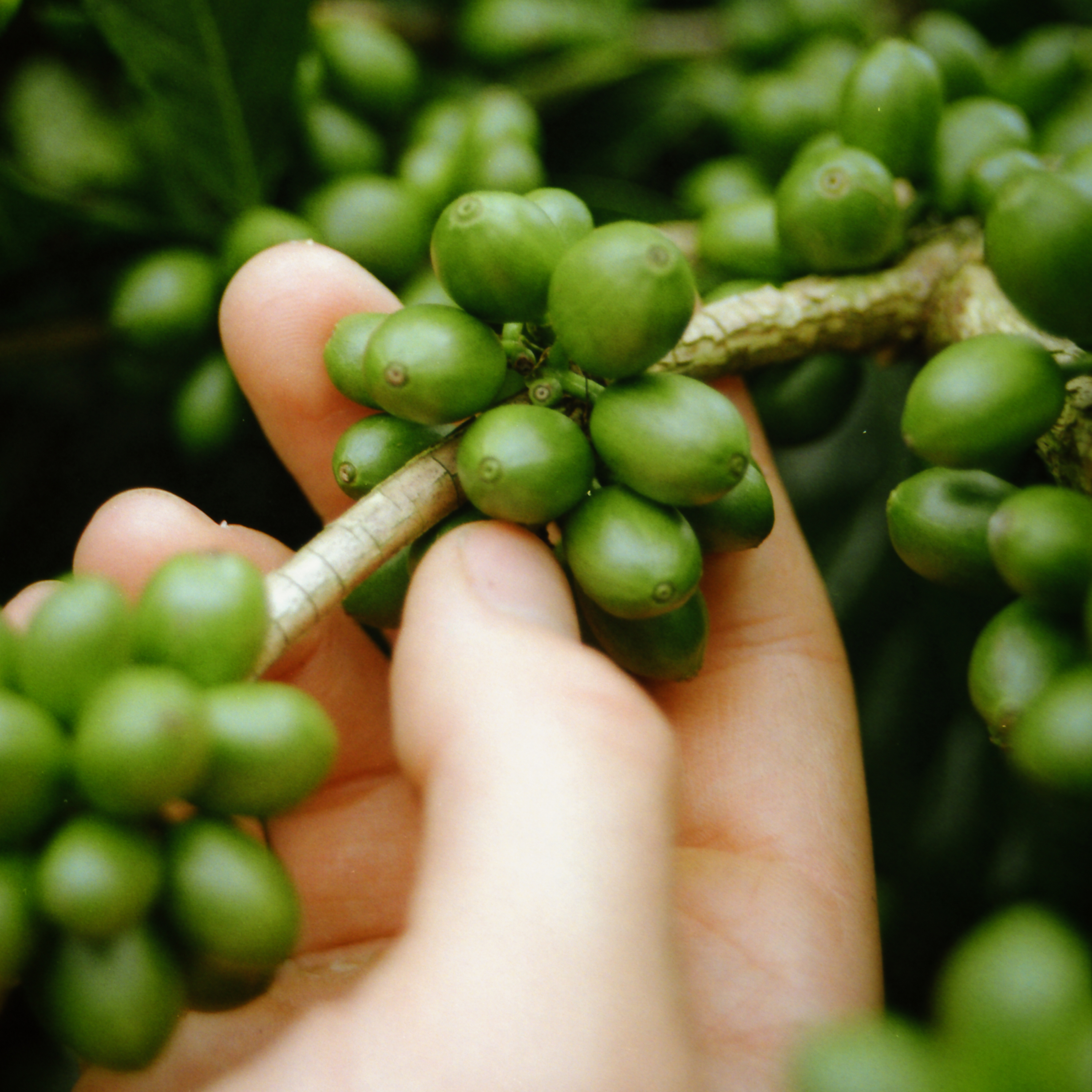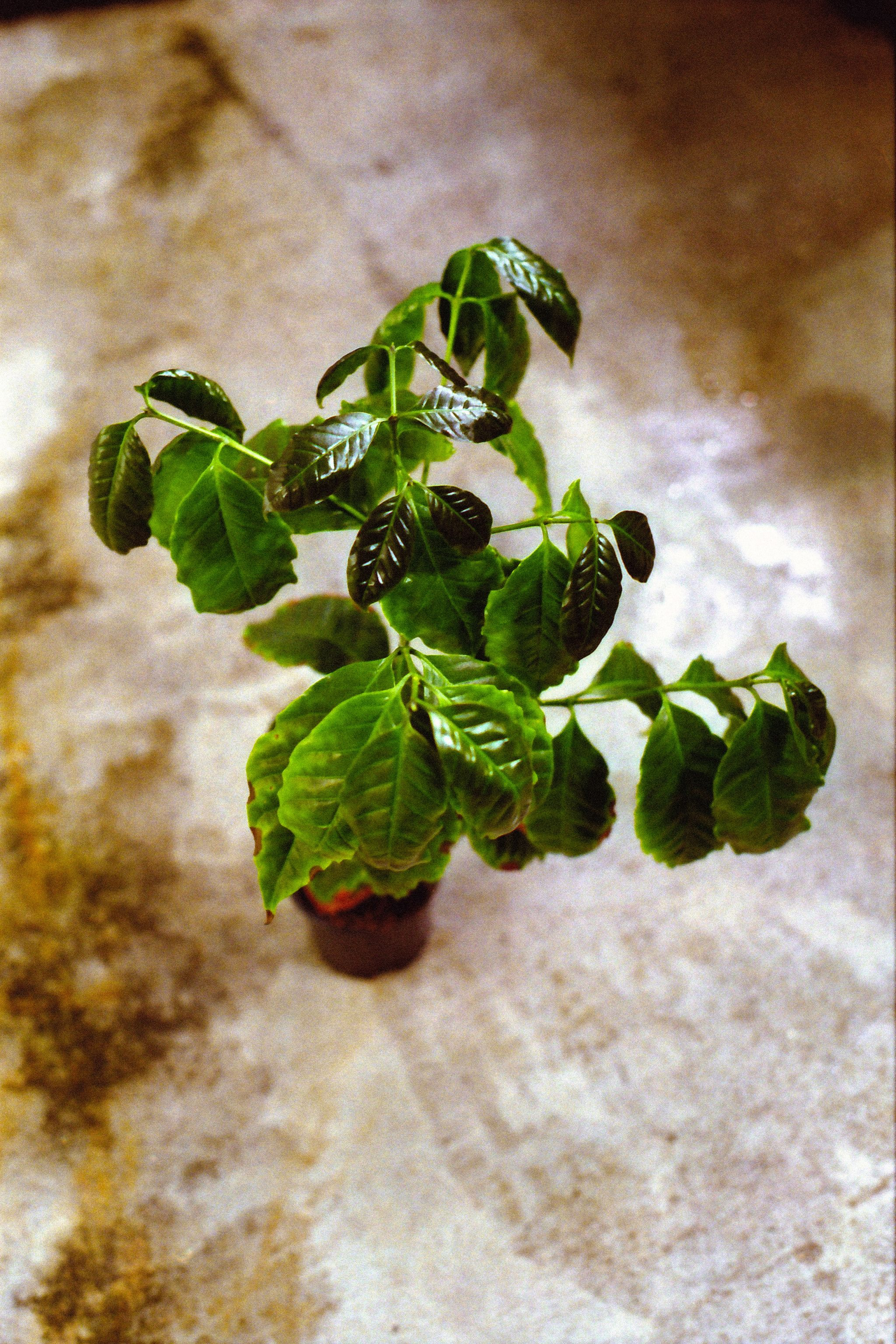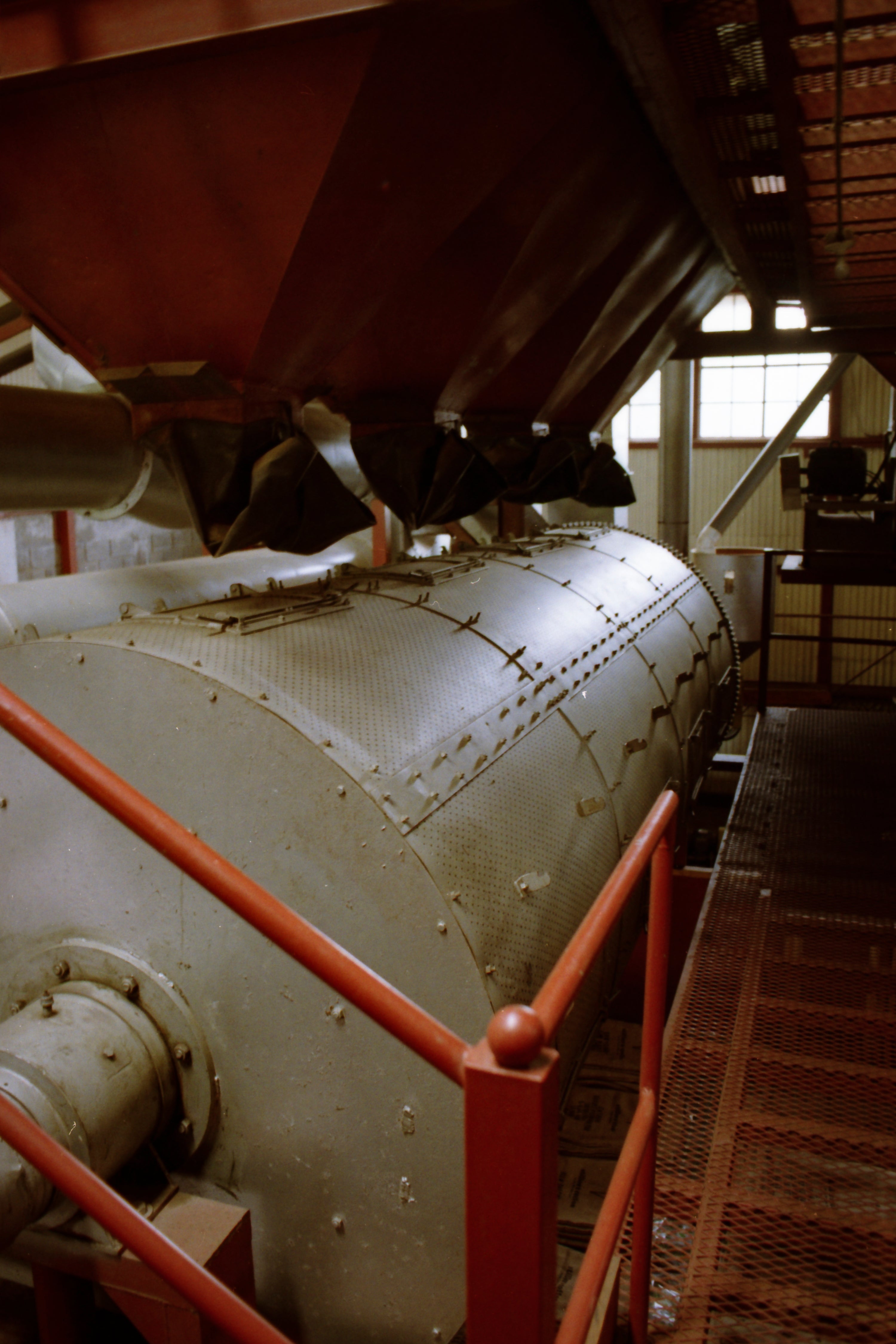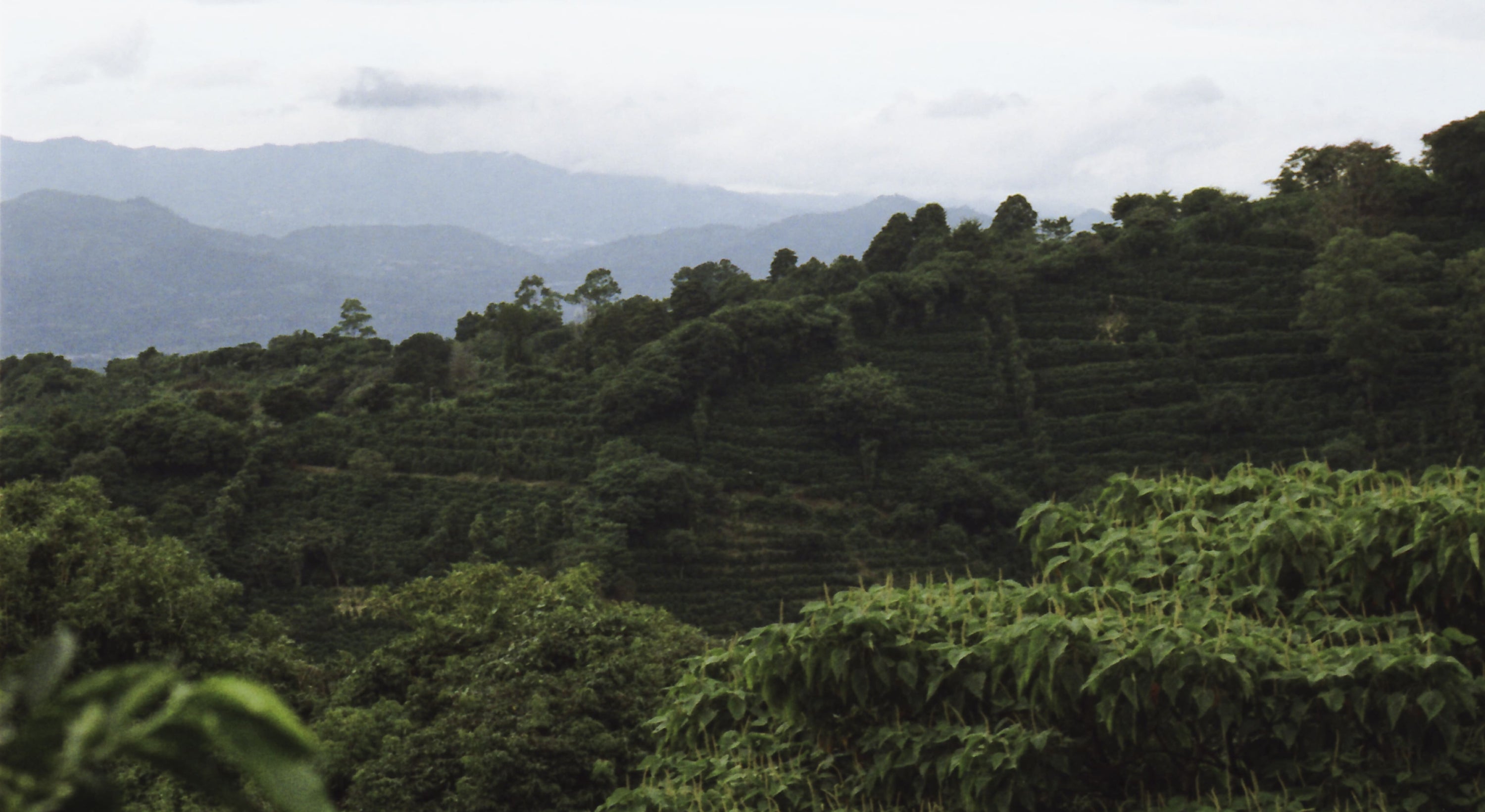Foliar Nutrition Experiment on Ethiopian Heirloom
We are excited to share the results of an experiment from our Coffee Research Center in Denmark, exploring the impact of foliar feeding on the productivity and quality of coffee. Foliar feeding is the direct application of nutrients to plant leaves - an underutilized complementary strategy to enhance nutrient use efficiency, correct deficiencies rapidly, and support critical physiological processes during key growth stages. The Poma Foliar Feeding System® tailors foliar applications based on continuous leaf sample analysis, ensuring that plants receive exactly what they need, precisely when they need it.
Inside the box, you’ll find two versions of an Ethiopian Heirloom variety. The first is a control sample that received no foliar nutrition, representing the classic profile of Ethiopian Heirloom coffee. The second underwent four foliar treatments, each customized according to nutrient deficiencies identified through ongoing leaf sampling via The Poma Foliar Feeding System®. This resulted in seeds with significantly higher density, producing a cup with greater intensity, more complexity, and elevated sweetness.
What’s in the box
150g - Cold Washed Ethiopian Heirloom, DK
150g - Cold Washed Ethiopian Heirloom (Foliar Fed), DK
20ml - Poma x Apaxlab Tonik (1) mineral concentrate
- Coffee will be roasted on July 4th and ship on July 7th
- DHL Express within 1-3 days from Denmark

Cold Washed Ethiopian Heirloom
In this control lot, you can expect a classic expression of Ethiopian Heirloom varieties, showcasing their signature elegance and floral notes. Aromas of lemon, oolong tea, and orange zest mingle beautifully with a vibrant, lively acidity that makes this coffee sparkle. The aftertaste is long, sweet, and lingering, leaving a strong impression.
Cold Washed Ethiopian Heirloom (Foliar Fed)
In this improved lot, foliar feeding allows the Ethiopian Heirloom variety to truly shine. It’s a delightful expression, offering aromas of jasmine, orange blossom, and grapefruit that come together and synergize beautifully. A well-balanced acidity gives way to the coffee’s extraordinary sweetness, leaving you eager for another sip.
Tonik [1], mineral concentrate
We have teamed up with Apax Lab to develop a specific water profile that enhances the flavor of our coffees to their fullest potential. This water blend is carefully crafted to balance and elevate all the unique qualities of the coffee beans.

Foliar Nutrition Experiment on Ethiopian Heirloom
Maintaining high yields and consistent quality in coffee production requires careful nutrient management, as the crop is highly responsive to both macro- and micronutrient availability throughout its growth cycle. Traditional soil fertilization practices often face limitations due to factors such as nutrient leaching, mineralization requirements in the soil, soil fixation, individual nutrient mobility, and varying root uptake efficiency. In this context, foliar nutrition - the direct application of nutrients to plant leaves - is an underutilized complementary strategy to enhance nutrient use efficiency, correct deficiencies rapidly, and support critical physiological processes during key growth stages. This is especially important for nutrients that are less mobile in the soil and plant tissues (i.e. Boron, Manganese, Zink, etc.). Foliar feeding can play an important role in overcoming soil-related constraints - particularly in coffee-growing regions where soil fertility may decline over time. Targeted foliar applications can help optimize growth, flowering, fruit set, and seed development, directly impacting both yield and cup quality.

Poma Research Station
Our Coffee Research Station was established six years ago in a climate-controlled greenhouse in Fyn, Denmark. Within this greenhouse, we manipulate environmental factors based on algorithms that mimic plant processes. This allows us to study how coffee trees react to climate change while also maintaining a stable environment for investigating the impact of farming practices.

Cold Washed Process
The coffee cherries were subjected to an initial cold storage period of 48 hours at 8°C. This gentle chilling process preserves and intensifies the coffee’s aromas without inducing fermentation, thereby safeguarding its natural taste profile. Subsequently, the cherries were depulped and underwent thorough washing and drying at low temperatures in a pressurized, rotating tumble dryer. This meticulous drying procedure ensures uniformity, resulting in a clean and crisp final product.
Technical Data
Producer: Rasmus Madsen
Origin: Poma Research Station, Denmark
Altitude: 2000 masl
Varietal: Ethiopian Heirloom
Process: Cold Washed
Harvest: Dec 2024
Brewing Advice
Rested coffee
We recommend resting our coffees for at least 10 days after the roast date, and we often find our coffee the most expressive around 3 weeks.
Water
To prepare, simply add 3.0g of the mineral concentrate to every 1 litre of high-quality demineralised water, then give it a good shake. This curated mixture will result in a mineral concentration of 90 parts per million (ppm) of perfectly balanced mineral compositions, optimising the brewing conditions for an exceptional coffee experience.
Brewing Parameters
We recommend using 13 grams of coffees to 200 grams of water. A coarse grind size approximately 900 micron. Brewing temperature 92C. Our brewing pattern is a 50g circular pour every 40 seconds. Total brew time is 3:00.






